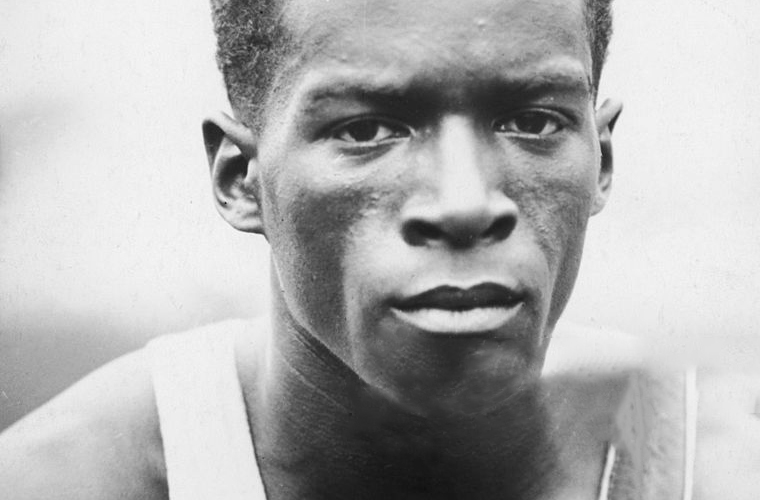As an African American, attending the University of Michigan and running track there was an achievement enough of its own. In Hubbard’s senior class, only eight out of the 1,456 graduating students were African American. He excelled in academics, graduating with honors in 1927, and on the track, setting records and winning numerous championships for the Wolverines. As a freshman, Hubbard was not allowed to run Varsity track. His sophomore year was mediocre but he began to break records in his junior year. He helped win Big Ten championships in the 100-meter dash, running a time of 9.8 seconds, and the long jump, jumping 24 feet 10 and ¾ inches. With performances like that, DeHart won a spot on the 1924 Olympic team, beating Edward Gourdin (then the world record holder) at trials at Harvard University to seal his spot to represent the United States at the Olympics in Paris, France.
Hubbard struggled initially at the Olympics. On his sixth and final jump match, he bruised his heel and committed a foul for stepping too far over the line. However, coming into his last jump at full speed, he leaped 24 feet 5 and ½ inches and became the first African American to win a gold medal as an individual in the Olympics.
Going into his senior year at Michigan Hubbard competed in sprints, hurdles, and the long jump, helping the Wolverines win Big Ten titles in indoor and outdoor meets. He also tied the world record in the 100-meter dash at 9.6 seconds, and beat the world record in the long jump, jumping 25 feet, 10 and 3/8 inches.
After graduating from the University of Michigan, Hubbard worked at a number of different jobs. He was a supervisor at the Department of Colored Work for the Cincinnati Public Recreation Commission, and was a manager of a housing project in Cincinnati, before moving to Cleveland, Ohio. He retired in Cleveland after working for the Federal Public Housing Authority. William DeHart Hubbard died on June 23, 1976, in Cleveland, Ohio.

